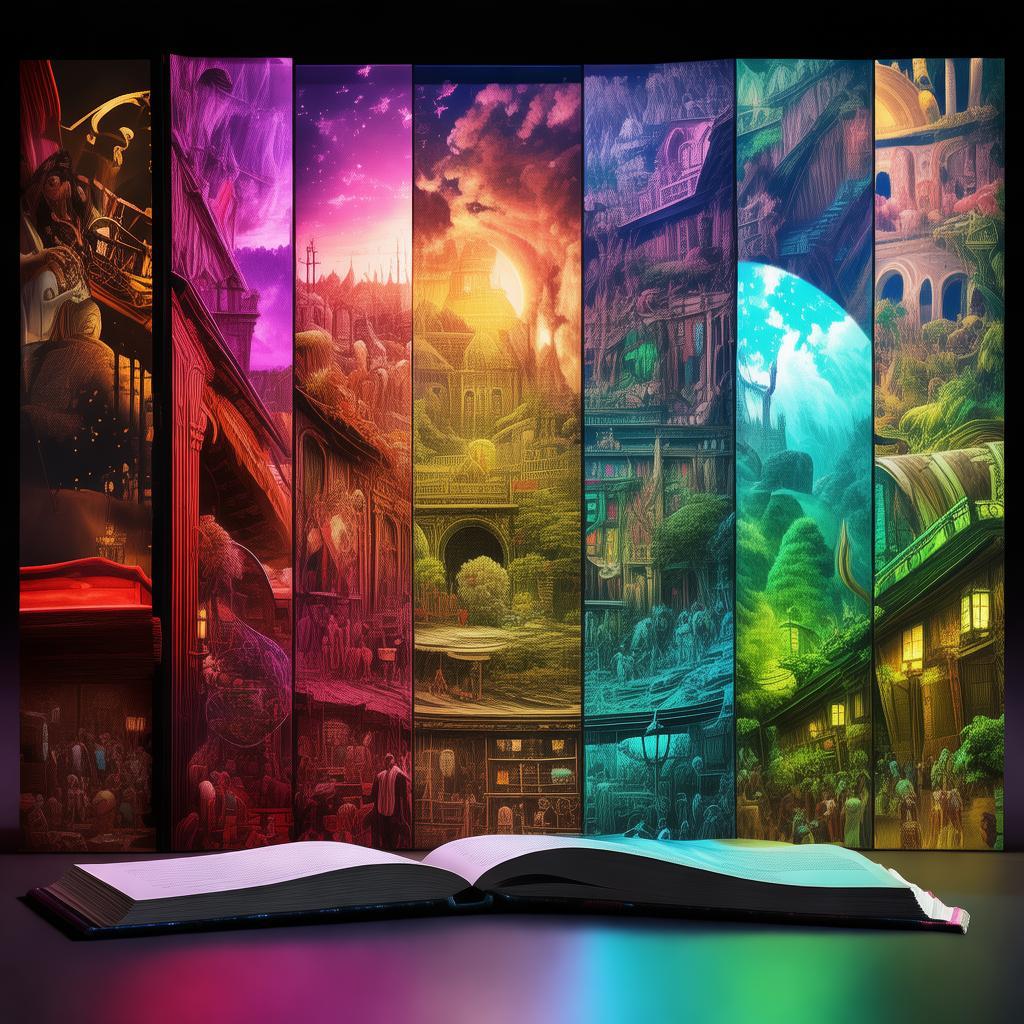The Zen Revelation: Wu Zong and Liu Zong's Quest for Enlightenment
In the tranquil village of Jinggangshan, nestled among the misty peaks of Jiangxi province, there lived a young monk named Wu Zong. His life was a tapestry woven from the threads of simplicity and discipline, yet within him simmered a restlessness that defied the calm exterior of a monk. Wu Zong had heard tales of enlightenment, of the profound understanding that allowed one to transcend the bounds of the material world and perceive the true nature of existence. Driven by an insatiable curiosity, he sought out the most revered Zen master of the land, Liu Zong, in hopes of finding the path to this enlightenment.
Upon reaching the ancient temple of the Zen master Liu Zong, Wu Zong was greeted by the serene figure of his mentor. Liu Zong, with his silver hair and piercing eyes, exuded a calm that seemed to emanate from his very being. Wu Zong felt a surge of hope and determination as he realized that this was the place where his quest for enlightenment would begin.
Liu Zong, recognizing Wu Zong's potential, began to impart his wisdom. "The path to enlightenment is not a journey of the mind but of the heart," he said. "It is not about understanding the world, but about understanding yourself."
Wu Zong listened intently, his mind racing with questions. "But how do I begin?" he asked, his voice barely above a whisper.
"Begin by looking within," Liu Zong replied. "The answers you seek are not outside of you, but within your own soul."
The first trial for Wu Zong was to live a life of silence. For weeks, he sat in meditation, his mind a whirlwind of thoughts and doubts. The silence was oppressive, and he found himself questioning the validity of his quest. It was during this time that Liu Zong visited him, his presence a stark contrast to the stillness of the room.
"Silence is not the absence of noise," Liu Zong said, his voice echoing in the chamber. "It is the absence of distraction. It is where you can hear the whispers of your own soul."
Wu Zong nodded, understanding that the silence was not about the absence of sound, but about the absence of the noise in his own mind.
The next trial was to engage with the world outside the temple walls. Wu Zong was sent into the bustling village, to interact with the people and learn from their lives. He was to listen, to observe, and to understand the suffering of others.
As Wu Zong wandered through the village, he encountered a young girl who had lost her family to the recent floods. Her eyes, filled with tears, were a mirror to his own inner turmoil. He sat with her, holding her hand, and listened to her story. In that moment, he realized that the suffering of others was a reflection of his own.

"Each person's pain is a mirror to your own," Liu Zong had told him. "By understanding others, you understand yourself."
Wu Zong's journey continued, each trial more challenging than the last. He faced the greed of the villagers, the pride of the wealthy, and the despair of the poor. Through it all, he learned to look beyond the surface and see the interconnectedness of all beings.
One evening, as the sun dipped below the horizon, casting long shadows across the temple grounds, Wu Zong found himself in a deep meditation. The world around him seemed to fade away, and he was left with a profound realization. He understood that enlightenment was not a destination but a continuous process of awareness and understanding.
"Master," Wu Zong whispered, his voice barely audible, "I have found the path."
Liu Zong smiled, his eyes twinkling with a sense of pride. "You have not found the path, Wu Zong. The path finds you."
As Wu Zong continued his journey, he carried with him the insights of his master, Liu Zong. He understood that enlightenment was not about transcending the world, but about embracing it fully. It was about finding peace within the chaos, and understanding that the true nature of existence was not outside of oneself, but within.
In the end, Wu Zong became a teacher, passing on the wisdom he had gained to those who sought enlightenment. And so, the legacy of Wu Zong and Liu Zong's Zen Master's Insight continued, a beacon of light in the world of Zen.
✨ Original Statement ✨
All articles published on this website (including but not limited to text, images, videos, and other content) are original or authorized for reposting and are protected by relevant laws. Without the explicit written permission of this website, no individual or organization may copy, modify, repost, or use the content for commercial purposes.
If you need to quote or cooperate, please contact this site for authorization. We reserve the right to pursue legal responsibility for any unauthorized use.
Hereby declared.









